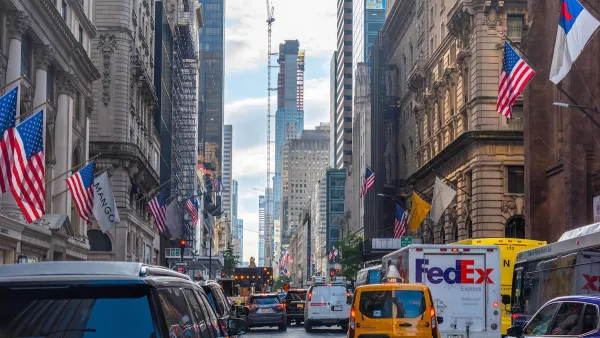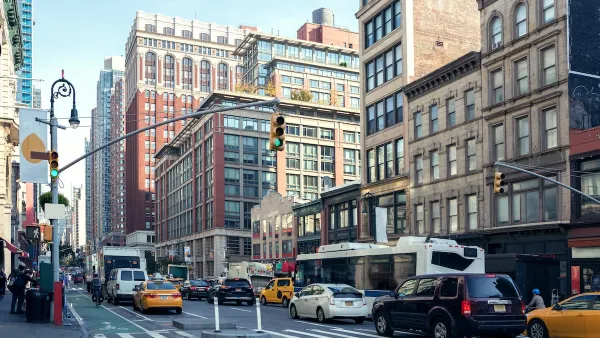This editorial from The New York Times argues that the city's public transportation system needs congestion pricing to stay alive.
"The Metropolitan Transportation Authority says it will need $29.5 billion over the next five years for system improvements, including buying new subway cars, upgrading signals and expanding. Anyone who rides New York's subways, buses and commuter rails would have to concede that the system badly needs the help. The question is how to find all that cash without sticking up riders again. A big part of the answer should be congestion pricing."
"New York riders pay a considerably higher share of the cost of mass transit than riders in other cities. Fares for buses, subways and commuter rails increased again this week to help pay the M.T.A.'s operating costs. It is time for New York drivers to help carry the burden. Congestion pricing fees can produce significant and recurring new money for mass transit's capital expenses."
FULL STORY: Mass Transit Needs Congestion Pricing

Maui's Vacation Rental Debate Turns Ugly
Verbal attacks, misinformation campaigns and fistfights plague a high-stakes debate to convert thousands of vacation rentals into long-term housing.

Planetizen Federal Action Tracker
A weekly monitor of how Trump’s orders and actions are impacting planners and planning in America.

In Urban Planning, AI Prompting Could be the New Design Thinking
Creativity has long been key to great urban design. What if we see AI as our new creative partner?

King County Supportive Housing Program Offers Hope for Unhoused Residents
The county is taking a ‘Housing First’ approach that prioritizes getting people into housing, then offering wraparound supportive services.

Researchers Use AI to Get Clearer Picture of US Housing
Analysts are using artificial intelligence to supercharge their research by allowing them to comb through data faster. Though these AI tools can be error prone, they save time and housing researchers are optimistic about the future.

Making Shared Micromobility More Inclusive
Cities and shared mobility system operators can do more to include people with disabilities in planning and operations, per a new report.
Urban Design for Planners 1: Software Tools
This six-course series explores essential urban design concepts using open source software and equips planners with the tools they need to participate fully in the urban design process.
Planning for Universal Design
Learn the tools for implementing Universal Design in planning regulations.
planning NEXT
Appalachian Highlands Housing Partners
Mpact (founded as Rail~Volution)
City of Camden Redevelopment Agency
City of Astoria
City of Portland
City of Laramie





























